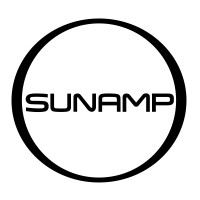Register
Product Overview
Overview
Sunamp was founded in 2006 with a focus on developing residential and industrial heat battery storage systems with the goal of making buildings more energy-efficient while reducing carbon emissions.
Their thermal energy storage technology uses patented phase change materials that can be charged with different energy sources, such as heat pumps, solar PV, and boilers, and released to deliver hot water, cooling, and space heating across a wide range of temperatures and applications.
The usage of PCM instead of water for storage offers a wide range of advantages:
- Reduction of volume needed (Thanks to the phase change Sunamp is able to store the same amount of energy in 4 times (heating & hot water applications) less volume than a conventional water tank, for cooling applications it is even 10 times)
- New design offers the possibility to use vacuumized insulation plates which offer a 2 to 4 times lower heat losses (this translates into energy and money savings and in a significant reduction of CO2 emissions if combined with a fossil fuel energy source like gas)
- Our Star PCM (Plentigrade P58) has reached the Grade A (the only one in the world) in the RAL Quality Association PCM which means that our PCM reaches a cycle stability of over 10.000 cycles (highest cyclability measurement). Effectively, it reaches over 40.000 cycles which means (in a two charging and discharging cycles per day) an operation of over 50 years.
- Due to the fact that our products don't have constantly any water inside, the maintenance is zero.
- Installation time reduced to half of the time of a water tank. Sunamp's products are designed for ease of installation where installation is kept simple and there are no special prior knowledge that the installers needs to have.
Business Model
As a production company Sunamp engages in a deep business relation ship with its partners. There are two ways how Sunamp distributes their products, where it should be mentioned that Sunamp only engages in a B2B relationship:
- Projects
Sunamp is always seeking for potential construction projects where heat batteries could be implemented. Therefore, they offer specification activities to find the most suitable product for the project at hand. After the technical aspect is defined, the commercial aspect is discussed based on volumes and on project management for production.
- Distribution and/or OEM partners
Sunamp engages with companies around the world with the main goal being to establish partnerships and use their knowledge to introduce Sunamp's products in the best way into their markets. Therefore, Sunamp engages in a commercial partnership where knowledge, prices and discounts, are discussed and the success of both companies is shared. These relationships are mainly commercial with a transfer of knowledge and are built to last for years.
Technology Innovations
- Patented Plantigrade phase change material (PCM)
- Reduced-sized solution to replace hot water heaters with clean energy or other energy sources
- Stored energy can be used when the grid fails as other storage devices
- Currently being scaled up to containerized megawatt-scale industrial heating and cooling applications
- Various applications depending on the temperature range required. Sunamp has successfully commercialized PCMs that reach from -30°C to over 110°C (phase change temperature)
Applications
Residential
- Replacing traditional hot water cylinders with heat batteries to efficiently store heat for hot water
- Offering compact buffer tanks for heating applications to be combined with heat pumps or even combining it with fossil fuel energy sources which are then able to work in a more efficient way, making the customer save money thanks to the efficiency increase.
C&I
- Targeted for a wide range of sectors including agriculture, hospitality, utilities, and off-grid solutions intended to deliver similar capabilities as to the residential sector but with a stackable solution.
- In a scaled-up version, the battery can be used to minimize peak energy usage, lower demand charges, and generate new revenue streams from grid services and demand response programs.
